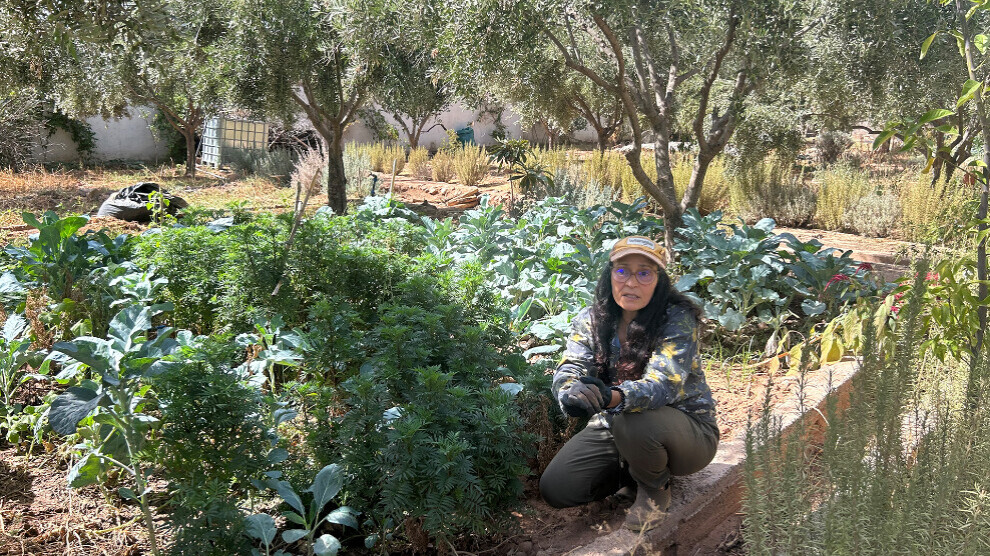Zeynep Shabibi's journey with nature offers guidance to women
In Morocco, where climate change and drought are being fought, Zeynep Shabibi's journey with nature demonstrates ways to protect the soil and produce healthy food against the climate crisis.

RAJA KHAIRAT
Morocco - As climate change, drought, and rising temperatures threaten agriculture, Moroccan environmental activist Zeynep Shabibi advocates for environmentally friendly production. She turns her back on the chemical pesticides and artificial techniques of modern agriculture, believing that organic farming is the best path for both human health and the environment.
Zeynep Shabibi explained that her turn to organic farming stemmed from a personal health crisis. She explained that she began searching for natural products after realizing that food produced with chemical pesticides was causing her serious health problems. During this time, she met with the "Humanity and Soil Association" and received training in organic farming. Through the knowledge and practices she gained there, she learned to nourish the soil with organic fertilizers, protect trees using natural methods, and support biodiversity. Working on new projects
Zeynep Shabibi, who purchased land in the Aghmat region near Marrakesh, is both meeting her own food needs and putting her learnings into practice. She explained that she has been experimenting with innovative methods such as underground rainwater storage and worm composting to combat water scarcity, and that she is also working on the regeneration of climate-adapted seeds.
'Ecological agriculture must be learned'
Zeynep Shabibi not only focuses on her own production but also considers it her duty to teach women and young farmers about ecological agriculture.
Explaining that she teaches soil enrichment, natural fertilizer use, and climate-appropriate production techniques at workshops she organizes in various regions of the country, Zeynep Shabibi said, "If a generation doesn't learn about ecological agriculture, the agriculture of the future will not be secure."
Pointing out that sustainability of ecological agriculture is difficult under Morocco's water shortages and climate pressures, Zeynep Shabibi emphasized the need for greater integration of scientific knowledge into agriculture. She said, "Collaboration with researchers is essential to measure soil acidity and develop methods suitable for crops." "Friends on the plate are friends in the soil."
Zeynep Şhabibi called for soil to be seen not only as a means of production but also as a source of life and a responsibility. She described the harmony in which plants grow together, saying, "Friends on the plate are friends in the soil."
Zeynep Shabibi is considered one of the strongest advocates of ecological agriculture in Morocco today. Her journey reminds us that protecting the soil against the climate crisis and producing healthy food is not only a scientific but also a humanitarian and ethical duty.
